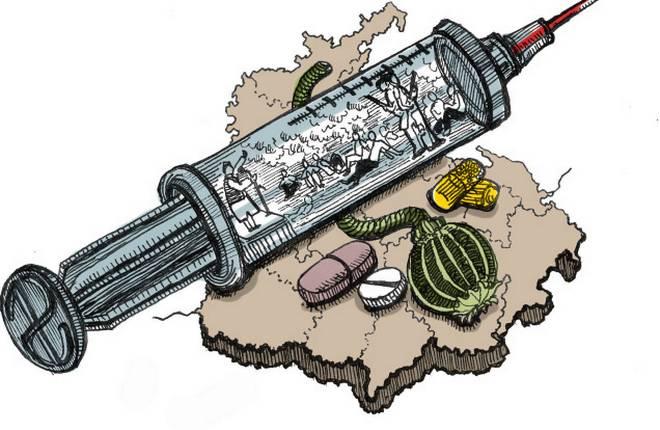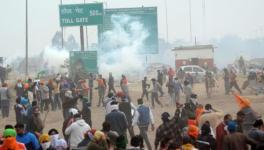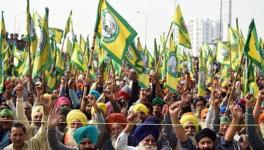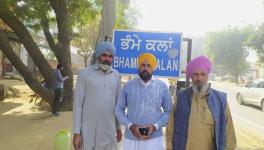Why Capital Punishment Isn't Going to Solve the Drug Problem in Punjab

Image Courtesy : The Hindu
A special cabinet meeting of the Punjab government on July 2, chaired by CM Amarinder Singh, decided to formally recommend to the Union Government, a death penalty for drug traffickers and smugglers. The Chief Minister tweeted that “Since drug peddling is destroying entire generations, it deserves exemplary punishment. I stand by my commitment for a drug-free Punjab (sic)". Curbing the rampant drug abuse in the State, and making it drug-free was one of the commitments of the Congress ahead of the Assembly elections last year.
But the CM's solution will hardly address the drug problem that is rampant in Punjab.
The experiences of Mexico and Philippines (amongst other countries) have clearly shown that more stringent laws and police crackdowns don’t work. They only lead to the loss of lives and an increase in convictions. The ‘war on drugs’ has led to the death of around 2 lakh people in Mexico over the past 10 years, whereas in the Philippines, the government itself has estimated that around 20,000 have been killed in two years.
India, too, has had a provision of death penalty for second-time offenders engaged in the production, manufacture, sale, transport etc., of illegal drugs since 1989, when section 31A was incorporated in the Narcotic Drugs and Psychotropic Substances (NDPS) Act, 1985. But a 2001 amendment narrowed down the range of offences for which death penalty could be given. In 2014, the provision was amended again and the decision was placed at the discretion of the presiding judge.
But it looks like those who were at the meeting weren’t aware of such a provision with the government later clarifying that “the Chief Minister has today demanded death penalty in the first instance of conviction [emphasis added by this author]” as reported by The Indian Express.
According to the press release, during the discussions, Amarinder Singh “ordered DGP Suresh Arora to intensify the police crackdown on the drug menace” and directed him to go all out against drug smugglers and peddlers.”
It is evident that the Punjab government’s approach is aggressive and predominantly relies on more stringent policing. In treating this multi-dimensional issue as one of ‘law and order’, they are making the same mistake that governments in Mexico and Philippines have made. This applies equally to the states of Gujarat and Bihar and the enforcement of the prohibition of alcohol.
The ‘war on drugs’ in Mexico and Philippines also shows that this approach neither curbs drug use nor affects the criminal and the drug cartels. It only leads to the deaths of petty drug peddlers, who take to it mainly due to unemployment, amongst other factors.
Sarim Naved, an advocate based in Delhi, told Newsclick that first and foremost, the death penalty was not a deterrent to any crime. It simply implied that the government was treating the problem as a criminal one, instead of looking at it holistically. He added that the drug problem could be adequately addressed only when seen in the wider socio-economic context. Only when the root causes of the problem (unemployment, or lack of dignified employment for instance) are addressed, can the government be successful in curbing the drug menace. A death penalty cannot and will not solve the drug problem, he added.
He also noted that those on the lowest rungs of the drug trade would be the worst affected. For instance, drug peddlers, who lack adequate financial and legal means, would not be able to defend themselves in court and would bear the brunt of the punishment.
It is clear that the nexus between drug cartels, law enforcement agencies and politicians needs to be identified (it is no secret that one exists), and completely destroyed. Until that happens, the big fish, with all their influence, will continue to thrive.
Demanding the death penalty can also be seen as an ‘act of intent’ on the part of the Punjab government. But that might not be enough to placate the people of the State, who have been protesting against the inaction and inefficiency of the government in curbing the drug menace.
A call for observing the first week of July as ‘Black Week’ was given by several NGOs and prominent personalities of the state, as reported in The Indian Express. The movement ‘Chittey De Virodh Vich Kaala Hafta’ (‘Chittey’ is slang for narcotics like Crack Cocaine and Opioids), with the tagline, Maro Jaan Virodh Karo (either die or speak against drugs), was started after a spate of drug-related deaths were reported from across the state in June.
Get the latest reports & analysis with people's perspective on Protests, movements & deep analytical videos, discussions of the current affairs in your Telegram app. Subscribe to NewsClick's Telegram channel & get Real-Time updates on stories, as they get published on our website.
























